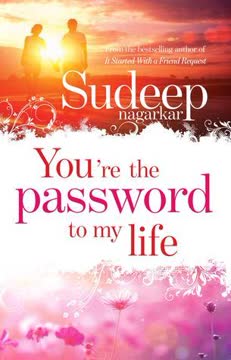Plot Summary
Prologue: Bonds Beyond Blood
The story opens with a meditation on the people who become our chosen family—friends who stand by us through thick and thin, and lovers who become the center of our emotional universe. Rohan, the protagonist, is blessed with both: a best friend, Virat, who is his partner in mischief and support, and a girlfriend, Riddhima, who is slowly becoming his soulmate. The prologue sets the tone for a narrative that will explore the complexities of friendship, love, and the ways in which these relationships shape our lives, often in unexpected ways.
Insane Friendship Rituals
Virat and Kavya's friendship is the heart of the story—unfiltered, playful, and fiercely loyal. Their days at college are filled with pranks, dares, and a mutual understanding that transcends societal norms. Kavya, bold and tomboyish, pushes Virat out of his comfort zone, while Virat's humor and laid-back attitude balance her energy. Their escapades, from embarrassing shopping trips to running out on bills, are not just comic relief but a testament to the kind of friendship that allows for vulnerability and growth. Their bond is a safe haven, immune to judgment, and sets the stage for the emotional stakes to come.
Love, Salsa, and Promises
Virat falls for Mahek, the college's enigmatic dancer, and enlists Kavya's help to win her over. The trio's dynamic shifts as Virat's infatuation grows, but not without conditions—Kavya extracts a promise that their friendship will remain unchanged, even if love enters the picture. The dance competition becomes a metaphor for the delicate choreography of relationships: learning to move in sync, risking vulnerability, and facing the fear of losing what matters most. As Virat and Mahek grow closer, the boundaries between friendship and romance blur, setting up future conflicts.
Rohan's Crossroads
Rohan, Virat's online friend, is caught between his love for Zoya and the realities of their interfaith relationship. His cousin Aditya and French tutor Riddhima provide support, but Rohan's world is shaken by Zoya's decision to end things due to family pressure. The pain of letting go, the confusion of unrequited love, and the solace found in friendship are explored with sensitivity. Rohan's journey is one of self-discovery, as he learns that sometimes, love means accepting loss and finding strength in those who remain.
Zoya's Goodbye
Zoya's decision to leave Rohan is rooted in cultural and personal constraints, but also in a secret she keeps hidden. Their final moments together are poignant, filled with longing and the ache of dreams deferred. Zoya's departure is not just a romantic loss for Rohan but a catalyst for his transformation. The narrative delves into the pain of separation, the difficulty of moving on, and the importance of closure—even when it comes in the form of unanswered questions and lingering memories.
Dance, Dreams, and Deceit
As the dance competition approaches, Mahek's anxiety and Virat's desperation to win for her sake lead him to make a questionable choice—pleading with rivals to throw the contest. When Mahek discovers this, she withdraws, unwilling to win at the cost of integrity. The fallout exposes the fragility of trust and the dangers of letting fear dictate actions. The chapter underscores that love and ambition can coexist, but only when honesty and respect are maintained.
The Price of Winning
Virat's confession to Kavya about his actions leads to a reckoning. Mahek's absence from the competition is a blow to both their dreams, but it also becomes a turning point. Through Kavya's intervention, Mahek and Virat confront their feelings and the reasons behind their actions. The resolution is bittersweet—Mahek values Virat's dignity over her own ambitions, and their mutual love is finally acknowledged. The episode highlights that true connection is built on understanding and forgiveness.
Confessions and Consequences
The aftermath of the competition brings a series of confessions: Mahek admits her love for Virat, and Rohan begins to see Riddhima in a new light. The characters grapple with the consequences of their choices, learning that honesty, even when painful, is the only path to healing. The narrative explores the complexity of human emotions—how love can be both a source of joy and pain, and how friendship can be both a comfort and a challenge.
New Beginnings, Old Wounds
Rohan, encouraged by friends, decides to pursue a relationship with Riddhima, recognizing the depth of her care and the possibility of happiness beyond Zoya. Virat and Mahek's relationship flourishes, but the shadow of past mistakes lingers. Kavya, ever the glue of the group, supports everyone while dealing with her own vulnerabilities. The chapter emphasizes that new beginnings are possible, but only when we acknowledge and learn from our wounds.
Kavya's Darkness
Kavya's accident and subsequent blindness are a devastating blow to the group. Virat is consumed by guilt, Mahek and Kavya's parents rally around her, and the hospital becomes a crucible for their relationships. Kavya's struggle to adapt to her new reality is both heartbreaking and inspiring. The narrative delves into themes of loss, resilience, and the ways in which adversity can either fracture or fortify bonds.
Healing, Hope, and Birthdays
Despite her blindness, Kavya's birthday becomes a celebration of life and friendship. Virat and Mahek's efforts to make her feel special underscore the importance of community in healing. Kavya's gradual acceptance of her condition, aided by the unwavering support of her friends, is a testament to the human capacity for adaptation and hope. The chapter is a reminder that even in darkness, love can be a guiding light.
Secrets, Siblings, and Surprises
A series of secrets come to light: Mahek is revealed to be Rohan's cousin, and Zoya's true reason for leaving Rohan is disclosed—she is terminally ill. These revelations force the characters to reevaluate their relationships and priorities. The intertwining of love, family, and friendship becomes more complex, but also more meaningful. The narrative suggests that understanding and acceptance are the keys to navigating life's surprises.
Valentine's Day Revelations
Valentine's Day becomes a milestone for the group: Rohan and Riddhima celebrate their love, Virat and Mahek seek Rohan's blessing, and Kavya's recovery continues. The joy of togetherness is tempered by the knowledge that happiness is fleeting and must be cherished. The chapter is a celebration of love in all its forms—romantic, platonic, and familial—and a prelude to the story's most tragic turn.
The German Bakery Tragedy
Just as the group seems poised for lasting happiness, tragedy strikes. Virat is killed in the German Bakery bombing, a real-life event that brings the narrative's themes of unpredictability and loss into sharp relief. The aftermath is chaotic and raw—grief, guilt, and disbelief ripple through the group. The randomness of fate is underscored, and the characters are forced to confront the impermanence of life and the importance of cherishing every moment.
Grief, Guilt, and Growth
The group struggles to process Virat's death. Mahek and Kavya are devastated, Rohan feels responsible, and the absence of their friend leaves a void that cannot be filled. Yet, in their grief, they find new strength in each other. Rohan steps up as a brother to Mahek and a support to Kavya, honoring Virat's legacy by embodying the values of love and friendship he championed. The chapter explores the stages of grief and the slow, painful process of healing.
Truths Unveiled
Mahek reveals to Rohan the truth about Zoya's illness, fulfilling Virat's last wish. Rohan's anger and sorrow give way to compassion and forgiveness. He and Riddhima travel to Shimla to see Zoya, bringing the story full circle and allowing for closure. The narrative emphasizes that understanding the reasons behind others' actions can transform pain into empathy and resentment into peace.
Moving On, Moving Forward
Time passes, and the characters rebuild their lives. Mahek starts her own dance school, Kavya regains her sight and dedicates herself to helping others, and Rohan and Riddhima marry and start a family. The scars of loss remain, but the group's resilience and mutual support allow them to find joy again. The story ends on a note of hope, affirming that while life is unpredictable and often unfair, love and friendship are the passwords that unlock meaning and fulfillment.
Epilogue: Passwords to Life
Years later, the characters reflect on the impact Virat had on their lives. His memory lives on in their actions, choices, and the bonds they continue to nurture. The epilogue is a meditation on the importance of cherishing those we love, embracing change, and finding purpose in the connections we forge. The story closes with the affirmation that, in the end, it is the people we love who are the true passwords to our lives.
Characters
Virat
Virat is the charismatic, witty, and sometimes reckless anchor of the story. Orphaned young, he masks his vulnerability with humor and bravado, but his loyalty to friends is unwavering. His relationship with Kavya is the emotional core—platonic yet profound, marked by mutual acceptance of each other's flaws. Virat's journey from carefree youth to a man willing to risk everything for love (Mahek) and friendship (Kavya) is both inspiring and tragic. His untimely death is the story's emotional climax, leaving a legacy of love, laughter, and the lesson that life's value lies in the connections we make.
Kavya
Kavya is bold, energetic, and unapologetically herself. Her tomboyish exterior hides a deep well of empathy and resilience. She is Virat's partner in crime, the one who challenges him and supports him unconditionally. Kavya's accident and subsequent blindness test her spirit, but her determination to adapt and her ability to find joy in adversity make her a symbol of hope. Her eventual recovery and continued commitment to friendship and service underscore the story's message of resilience and the transformative power of love.
Mahek
Mahek is the object of Virat's affection and the catalyst for much of the story's drama. Ambitious and talented, she dreams of a career in dance but is also deeply sensitive and principled. Her relationship with Virat is marked by mutual growth, misunderstandings, and eventual deep love. Mahek's journey is one of self-discovery—learning to balance ambition with integrity, and love with independence. Her grief after Virat's death is profound, but she channels it into her work and relationships, embodying the story's theme of moving forward without forgetting the past.
Rohan
Rohan is introspective, loyal, and often caught between duty and desire. His struggles with Zoya, his evolving friendship with Virat, and his eventual romance with Riddhima make him the story's emotional barometer. Rohan's journey is one of learning to let go—of lost love, of guilt, and of the need for control. His willingness to support others, even as he grapples with his own pain, marks his growth from a passive sufferer to an active agent of healing and connection.
Riddhima
Riddhima is Rohan's French tutor and eventual wife. She is mature, understanding, and quietly strong, providing stability and care when Rohan is at his lowest. Her love is steadfast, marked by patience and a willingness to put Rohan's happiness above her own desires. Riddhima's journey is one of waiting and hoping, and her eventual happiness is a reward for her unwavering faith in love.
Zoya
Zoya is Rohan's first love, torn between her feelings and the constraints of her conservative family—and, as revealed later, her own terminal illness. Her decision to leave Rohan is an act of love, meant to spare him pain, but it also causes deep wounds. Zoya's story is a meditation on the limits of love, the pain of secrets, and the nobility of sacrifice. Her final meeting with Rohan brings closure and a sense of peace.
Aditya
Aditya is Rohan's cousin and confidant, often providing comic relief and practical advice. He serves as a narrative observer, offering insights into the main characters' struggles and growth. Aditya's role is to facilitate healing, encourage honesty, and remind the others of the importance of laughter and perspective.
Rohan's and Kavya's Parents
Though not always central, the parents represent the generational and cultural forces that shape the characters' choices. Their reactions to love, loss, and adversity provide context for the younger generation's struggles and triumphs.
Supporting Friends and Rivals
Other college friends, dance competitors, and incidental characters serve to challenge, provoke, and support the main cast. Their actions—whether antagonistic or supportive—help the protagonists clarify their values and priorities.
Plot Devices
Dual Narratives and Interwoven Lives
The novel employs a dual narrative structure, following both Virat-Kavya-Mahek and Rohan-Zoya-Riddhima, with their stories intersecting at key moments. This structure allows for thematic resonance—contrasting different kinds of love, loss, and recovery—and highlights the interconnectedness of human experience.
Foreshadowing and Irony
From the outset, the narrative foreshadows loss and change, using irony (e.g., plans for the future disrupted by unforeseen events) to underscore the fragility of happiness. The German Bakery bombing, a real historical event, is foreshadowed through references to unpredictability and the importance of cherishing the present.
Symbolism: Passwords and Access
The recurring motif of passwords—who has access to one's life, heart, and secrets—serves as a metaphor for intimacy, trust, and vulnerability. The title itself encapsulates the idea that the people we love are the keys to our happiness and identity.
Letters, Messages, and Missed Connections
Text messages, letters, and unsent confessions play a crucial role in the plot, symbolizing both the desire for connection and the fear of rejection. The best conversations, the story suggests, are often those that never happen, and the most important words are sometimes left unsaid.
Realism and Contemporary Setting
By situating the story in contemporary India and referencing real events (like the German Bakery bombing), the novel grounds its emotional drama in a recognizable reality, making the characters' struggles and triumphs more relatable and poignant.
Analysis
"You Are the Password to My Life" is a heartfelt exploration of the bonds that define us—friendship, love, and the chosen family we build. Sudeep Nagarkar crafts a narrative that is both entertaining and emotionally resonant, using humor, tragedy, and romance to examine the ways in which relationships shape our identities and destinies. The novel's central lesson is that life is unpredictable and often unfair, but the connections we forge—with friends, lovers, and even those we lose—are what give it meaning. Through its interwoven stories, the book advocates for honesty, resilience, and the courage to move forward after loss. It reminds us that the people we love are the true passwords to our lives, granting us access to joy, healing, and self-discovery. In a world where change is the only constant, it is these bonds that endure, offering hope and purpose even in the face of heartbreak.
Last updated:
FAQ
0. Synopsis & Basic Details
What is You are the Password to my Life about?
- Intertwined Fates Unfold: The novel chronicles the lives of two friends, Virat and Rohan, and their respective romantic and platonic relationships, exploring how their paths unexpectedly converge amidst college life, personal struggles, and unforeseen tragedies in Pune. It delves into the complexities of love, friendship, and self-discovery as characters navigate heartbreak, ambition, and the search for genuine connection.
- Navigating Modern Relationships: The story highlights the role of contemporary communication (Gtalk, SMS) in forming and sustaining bonds, contrasting it with the raw emotional challenges of real-life interactions, cultural expectations, and personal insecurities. It portrays the vibrant, sometimes reckless, lives of Indian youth, grounded in relatable experiences of college, parties, and budding romance.
- A Journey of Resilience: Ultimately, it's a narrative about coping with profound loss and finding strength in chosen family. The characters are forced to confront life's unpredictability, learning to cherish moments, forgive past hurts, and rebuild their lives, demonstrating that even in the face of devastating events, human connection provides the ultimate "password" to meaning and happiness.
Why should I read You are the Password to my Life?
- Emotional Depth & Relatability: Readers should delve into this book for its raw portrayal of youthful emotions, from the exhilarating highs of first love and insane friendships to the crushing lows of heartbreak and tragic loss. The characters' struggles with commitment, family expectations, and personal identity resonate deeply, offering a mirror to universal human experiences.
- Unique Narrative Structure: The novel masterfully interweaves multiple storylines, allowing readers to witness parallel journeys of love and friendship that eventually converge, creating a rich tapestry of interconnected lives. This structure provides diverse perspectives on themes of loyalty, sacrifice, and the unpredictable nature of fate, keeping the reader engaged and invested.
- Cultural Immersion & Life Lessons: Beyond the romance, the book offers a glimpse into contemporary Indian youth culture, complete with college antics, social dynamics, and the challenges of inter-caste relationships. It delivers powerful life lessons on resilience, the importance of cherishing loved ones, and the idea that "everything happens for a reason," even when those reasons are initially obscured by pain.
What is the background of You are the Password to my Life?
- Contemporary Indian Youth Culture: The story is set in Pune, India, reflecting the vibrant college life and social scene of young adults in the late 2000s (2009-2010). It captures the essence of friendships, dating, and aspirations within a modern Indian context, where traditional values (like Zoya's conservative family) often clash with evolving personal freedoms.
- Technology's Role in Connection: The narrative prominently features early social media and communication tools like Gtalk, SMS, and Orkut, illustrating how these platforms facilitated new forms of connection and intimacy among friends and lovers. This technological backdrop highlights the evolving landscape of relationships in the digital age, where online interactions often precede or supplement real-world encounters.
- Real-World Tragedy as a Plot Device: The climax of the story is anchored to the real-life German Bakery bombing in Pune (February 2010), grounding the fictional drama in a poignant historical event. This integration adds a layer of realism and underscores the novel's themes of life's unpredictability and the sudden, devastating impact of external events on personal lives.
What are the most memorable quotes in You are the Password to my Life?
- "Zindagi ko badalne me waqt nahi lagta, Par kabhi kabhi waqt ko badalne me zindagi lag jati hai!!": This profound Hindi couplet, featured in the dedication, translates to "Life doesn't take time to change, But sometimes it takes a lifetime to change time!!" It encapsulates the novel's central theme of life's unpredictable shifts and the arduous journey of healing and transformation, resonating deeply with the characters' experiences of sudden loss and gradual recovery.
- "You know what they say—when you know why you like someone, it's a crush and when you can't think of a reason or explanation, it's love.": This quote, initially sent by Rohan to Riddhima (and appearing in the prologue, creating a subtle narrative misdirection), defines the elusive nature of true love within the story. It highlights the spontaneous, inexplicable depth of affection that characters like Rohan and Virat eventually discover, contrasting it with superficial attractions.
- "If I am given a chance to love again, I would still choose you because you're the password to my life.": Uttered by Virat to Mahek in a message shortly before his death, and later read by Mahek, this line is the emotional core of the book's title. It symbolizes the profound, irreplaceable connection one person can have to another's existence, making them the key to their happiness, identity, and sense of purpose, even in absence.
What writing style, narrative choices, and literary techniques does Sudeep Nagarkar use?
- Direct, Conversational Prose: Nagarkar employs a straightforward and accessible writing style, often mimicking natural conversation and internal monologue, making the characters' thoughts and feelings immediately relatable. This directness, combined with occasional Hinglish phrases ("paagalpanti," "fattu"), creates an authentic voice that resonates with a young Indian readership.
- Shifting Perspectives & Omniscient Narration: While primarily third-person omniscient, the narrative frequently dips into the first-person perspectives of characters like Aditya, Rohan, and Virat, offering intimate access to their emotional states and motivations. This technique allows for a multi-faceted exploration of events and relationships, building empathy and understanding for each character's journey.
- Emotional Foreshadowing & Thematic Repetition: The author uses subtle foreshadowing, such as Virat's repeated carelessness with his car or Kavya's poignant lines about friendship, to build tension and underscore life's unpredictability. The recurring motif of "password to my life" and the exploration of different facets of love (first love, true love, sacrificial love) serve to reinforce the novel's core themes of connection, loss, and resilience.
1. Hidden Details & Subtle Connections
What are some minor details that add significant meaning?
- Virat's Car Carelessness: The recurring detail of Virat forgetting to lock his car, often chided by Kavya ("You are so careless, Virat. This is unacceptable."), subtly foreshadows the chaotic and unexpected nature of the tragedy that befalls Kavya. It highlights a character flaw that, while seemingly minor, reflects a broader theme of life's inherent unpredictability and the suddenness with which normalcy can be shattered, despite warnings.
- Rohan's Superstitious Rings: Rohan's habit of wearing "precious stone rings on his fingers to ward off evil and control his temper" reveals a deeper layer to his character, contrasting his outwardly romantic and focused persona with an underlying vulnerability and a need for external control over his emotions and fate. This detail subtly hints at his struggles with anxiety and his desire for stability in a chaotic world, especially after his breakup with Zoya.
- The "Washroom Baba" Incident: The students' collective prank of trapping a professor in the washroom by setting off firecrackers, affectionately calling it "Washroom Baba," is a seemingly trivial college anecdote. However, it symbolizes the youthful rebellion and camaraderie that defines the early parts of the story, contrasting sharply with the grave realities and responsibilities the characters face later, marking a loss of innocence and carefree days.
What are some subtle foreshadowing and callbacks?
- Kavya's "Until I Am Alive" Promise: When Virat asks Kavya for her support in telling Rohan about his relationship with Mahek, Kavya emphatically states, "I will never let you do anything wrong until the day I am alive." This seemingly innocuous declaration of loyalty gains tragic weight in hindsight, subtly foreshadowing her accident and Virat's subsequent grief, emphasizing the fragility of life and the profound impact of her absence.
- The Prologue's Narrative Trick: The opening scene describes Rohan sending a romantic message to Riddhima and calling Virat, but the narrative initially leads the reader to believe this is Virat and his girlfriend. This clever misdirection is a callback to the book's later events, revealing the cyclical nature of love and loss, and how characters step into similar emotional roles, highlighting the interconnectedness of their journeys.
- "Password to My Life" Evolution: The phrase "You are the password to my life" is first used by Virat in a message to Mahek, then later by Mahek to Virat, and internally by Virat about Kavya. This recurring motif subtly tracks the shifting emotional anchors in the characters' lives, demonstrating how different individuals hold the key to their happiness and identity at various stages, and how this "password" can be both a source of strength and vulnerability.
What are some unexpected character connections?
- Zoya's Indirect Influence on Riddhima's Acceptance: While Zoya and Riddhima never directly interact about Rohan's feelings, Zoya's advice to Rohan ("find a girlfriend who loves you, and don't just go by her appearance. She should be able to take care of you in your hard times and understand your needs") subtly guides Rohan towards Riddhima. Riddhima's unwavering support and understanding, even during Rohan's grief for Zoya, fulfills this criteria, creating an unexpected, almost posthumous, connection between Rohan's past and future loves.
- Virat's Online Friendship as a Catalyst: Virat and Rohan's friendship, initiated through a "blogger's site" and Gtalk, is initially presented as a casual online connection. However, this seemingly minor detail becomes the unexpected catalyst for major plot developments, including Virat's eventual relationship with Rohan's cousin Mahek and the revelation of Zoya's secret, demonstrating how digital connections can profoundly impact real-world destinies.
- Kavya's Vision Restoration: The epilogue reveals Kavya's eyesight was "resurrected" through an operation, a detail not explicitly foreshadowed but profoundly impactful. This unexpected recovery serves as a powerful callback to her earlier identity crisis ("I just wanted to see how I look after an accident... I felt like I had lost my identity") and symbolizes a complete return to self, emphasizing themes of hope and overcoming adversity beyond initial expectations.
Who are the most significant supporting characters?
- Aditya, The Unofficial Therapist: Rohan's cousin Aditya transcends the typical supporting role by acting as a consistent emotional anchor and pragmatic advisor, particularly for Rohan. His blunt honesty ("Love is never wrong. But your choice can be.") and unwavering support, even when it means sacrificing his own plans, make him a crucial catalyst for Rohan's emotional growth and decision-making, embodying the theme of chosen family.
- Riddhima, The Steadfast Healer: Initially Rohan's French tutor, Riddhima evolves into his patient and nurturing partner, whose quiet strength and unconditional care are pivotal to Rohan's recovery from heartbreak. Her willingness to stand by him selflessly, even when her love is unrequited, highlights the transformative power of empathetic support and makes her the embodiment of true, enduring love in the narrative.
- Zoya, The Sacrificial Catalyst: Though she exits Rohan's life early, Zoya's character remains profoundly significant due to her hidden illness and the selfless decision to leave Rohan for his own good. Her actions, driven by a desire for Rohan's happiness, serve as a powerful, tragic catalyst for his emotional maturity and his eventual appreciation of Riddhima's love, underscoring themes of sacrifice and the complex nature of love.
2. Psychological, Emotional, & Relational Analysis
What are some unspoken motivations of the characters?
- Riddhima's Quiet Persistence: Riddhima's motivation to stay by Rohan's side, despite his initial heartbreak over Zoya and his reluctance to commit, stems from a deep, unspoken belief in their connection and her own capacity for unconditional love. Her actions, like making him coffee or helping with chores, are not just friendly gestures but subtle, persistent expressions of her hope and commitment, driven by the conviction that she is the right person for him.
- Virat's Underlying Fear of Loss: Virat's seemingly carefree and reckless nature, coupled with his fear of serious relationships ("He feared getting into a serious relationship as the early demise of his parents had scarred him forever"), masks a profound underlying fear of loss. His desperate attempt to bribe competitors for Mahek's win, though misguided, is an unspoken manifestation of this fear, driven by the terror of losing her affection if they failed, highlighting his vulnerability beneath the bravado.
- Zoya's Self-Preservation and Love: Zoya's decision to break up with Rohan, initially attributed to family pressure, is later revealed to be motivated by her HIV diagnosis. Her unspoken motivation was to spare Rohan the pain and complications of her illness, choosing self-sacrifice as the ultimate act of love. This hidden truth transforms her from a seemingly weak character into one driven by immense courage and a desire for Rohan's future happiness.
What psychological complexities do the characters exhibit?
- Rohan's Emotional Paralysis: Following his breakup with Zoya, Rohan exhibits psychological complexities rooted in emotional paralysis, struggling to move on despite knowing it's necessary. His internal conflict is evident in his inability to delete Zoya's messages and his initial resistance to Riddhima's love, showcasing how past trauma can hinder future happiness and the difficulty of reconciling logical understanding with emotional attachment.
- Kavya's Identity Crisis Post-Blindness: After her accident, Kavya experiences a profound identity crisis, articulated by her desire to see her reflection in the mirror ("I just wanted to see how I look after an accident... I felt like I had lost my identity"). This goes beyond physical pain, delving into the psychological impact of losing a fundamental sense of self and control, highlighting the deep connection between sight, self-perception, and independence.
- Virat's Loneliness and Coping Mechanisms: Orphaned at a young age, Virat's witty exterior and "friends with benefits" approach to relationships are coping mechanisms for deep-seated loneliness and a fear of genuine intimacy. His reliance on Kavya for emotional support and his sudden depression after her accident ("He kept thinking if something like this would have happened to him, who would have been his moral support") reveal the psychological weight of his past and his need for profound connection.
What are the major emotional turning points?
- Kavya's Accident and Blindness: The sudden, devastating accident that leaves Kavya blind is a major emotional turning point, plunging the entire group into shock and grief. This event forces Virat to confront his deepest fears of loss and responsibility, while also galvanizing the friends to rally around Kavya, transforming their carefree dynamic into one of profound mutual support and resilience.
- Virat's Desperate Plea for Mahek's Win: Virat's decision to secretly plead with the senior dance competitors to lose, driven by his fear of losing Mahek's love, marks a critical emotional turning point. It exposes his vulnerability and insecurity, leading to Mahek's disillusionment and a temporary rift, but ultimately paving the way for their honest confession of love and a deeper understanding of mutual respect.
- Rohan's Call to Zoya After Moving On: Rohan's decision to call Zoya after accepting Riddhima's love, not to beg, but to inform her he's moving on, is a pivotal emotional moment. Zoya's feigned ignorance ("Rohan…who?") acts as a harsh but necessary catalyst, shattering Rohan's lingering illusions and providing the final emotional clarity he needs to fully embrace his new relationship with Riddhima, symbolizing true closure.
How do relationship dynamics evolve?
- Virat and Kavya's Friendship Tested by Romance and Tragedy: Their "insane friendship" evolves from playful teasing and shared mischief into a profound, almost familial bond that is tested by Virat's romance with Mahek and, more significantly, by Kavya's tragic accident. The shift from lighthearted camaraderie to deep, unwavering support in the face of adversity showcases the enduring strength and transformative power of their platonic love.
- Rohan's Journey from Doomed Romance to Steadfast Love: Rohan's relationship dynamic shifts dramatically from his passionate but ultimately doomed first love with Zoya, marked by external pressures and hidden truths, to a slow-burning, deeply empathetic connection with Riddhima. This evolution highlights his growth from a passive sufferer to someone capable of recognizing and valuing unconditional love, demonstrating that true love can emerge from unexpected places.
Review Summary
"You are the Password to my Life" received mixed reviews, with an average rating of 3.69 out of 5. Some readers praised the emotional storytelling, relatable characters, and themes of friendship and love. However, many criticized the writing style as poor and amateurish, with clichéd quotes and predictable plot twists. Several reviewers found the book engaging and touching, while others felt it was poorly written and unoriginal. The book's ending was particularly divisive, evoking strong emotional reactions from both supporters and critics.
Similar Books
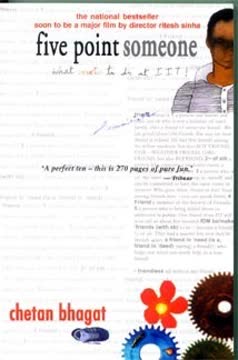
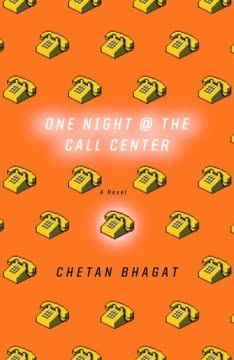

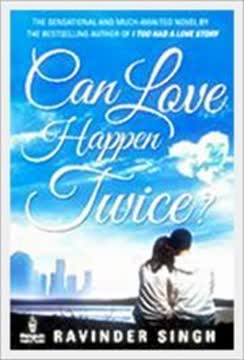

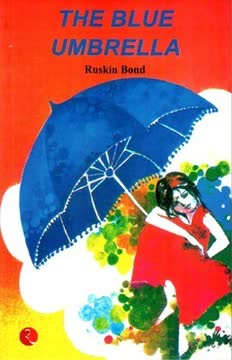

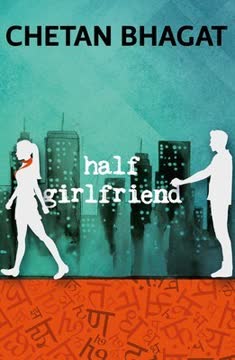
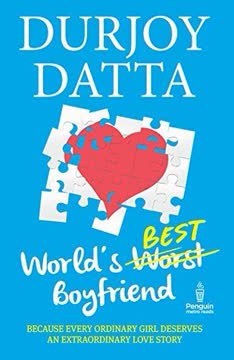
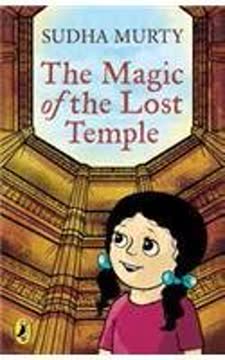
Download PDF
Download EPUB
.epub digital book format is ideal for reading ebooks on phones, tablets, and e-readers.
